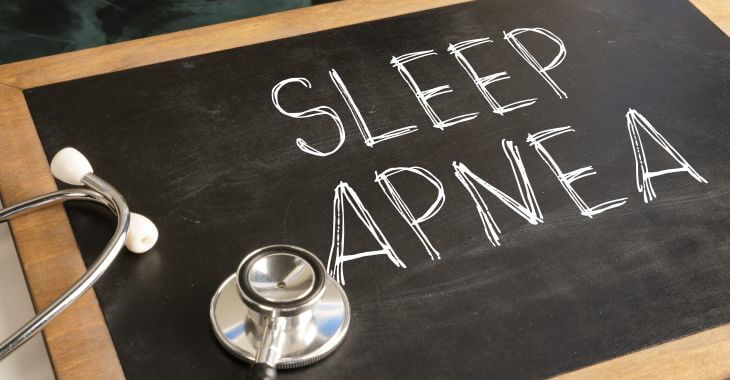Can a Sinus Infection Make You Dizzy?

Sinus infections, also known as sinusitis, can cause a wide range of symptoms. While most people associate them with congestion and headaches, some experience dizziness. If you’ve ever asked, “Can a sinus infection make you dizzy?”, the answer is yes—and here’s why.
How Sinus Infections Affect Balance
Your sinuses are located close to your inner ear. When they become inflamed or filled with fluid, pressure can build. This pressure may affect your vestibular system, the part of your ear responsible for balance, leading to dizziness.
The vestibular system helps your brain interpret spatial orientation and movement. When inflamed sinuses apply pressure on nearby structures, signals from the inner ear can become distorted, making you feel off-balance or even causing vertigo.
What Dizziness Feels Like During Sinusitis
Sinus-related dizziness may feel like lightheadedness, vertigo, or the sensation of the room spinning. This sensation often worsens when you stand up quickly or move your head. You may also feel off-balance or unsteady on your feet.
In some cases, dizziness can make it difficult to walk in a straight line or concentrate on simple tasks. These symptoms may be accompanied by visual disturbances, nausea, or even a headache, further complicating how you feel.
Can a Sinus Infection Make You Dizzy and Lightheaded?
Yes. Many people ask, can a sinus infection make you dizzy and lightheaded? The inflammation and pressure in your sinus cavities can reduce oxygen levels and blood flow to the brain, triggering lightheadedness or faintness.
Lightheadedness often comes and goes, but it can be especially noticeable when bending over, standing up too quickly, or turning your head rapidly. These changes in posture cause a shift in sinus pressure, making symptoms worse.
Can a Sinus Infection Make You Dizzy and Tired?
Feeling tired is also a common symptom. Can a sinus infection make you dizzy and tired? Absolutely. Your body is working hard to fight the infection, which can leave you feeling fatigued, especially if you have disrupted sleep from congestion or discomfort.
Tiredness is your body’s natural response to infection. Sleep may also be disturbed by nighttime sinus pressure, leading to poor rest and heightened fatigue the following day.
Other Sinus Infection Symptoms
In addition to dizziness, sinus infections often come with these symptoms:
- Nasal congestion
- Facial pressure or pain
- Headaches
- Post-nasal drip
- Sore throat
- Bad breath
- Fever (in some cases)
- Fatigue and brain fog
Can a Sinus Infection Make You Feel Dizzy?
Yes. If you’re wondering, “Can a sinus infection make you feel dizzy?”, it’s important to note that not everyone experiences this symptom. However, for those who do, it can be frustrating and interfere with daily life.
Even mild sinus infections can sometimes trigger symptoms related to balance and focus, particularly if the maxillary or ethmoid sinuses are involved. These are closest to the areas of the inner ear and brain that manage balance.
How Long Does Dizziness Last?
Dizziness from a sinus infection usually lasts as long as the infection is active. Acute sinus infections may last 7 to 10 days, while chronic cases can persist for weeks or even months. Treating the infection often resolves the dizziness.
However, if symptoms linger after other sinus issues have cleared, it may indicate a secondary condition like inner ear inflammation or vestibular neuritis that needs further evaluation.
When to See a Doctor
Seek medical attention if:
- Dizziness is severe or constant
- Symptoms last more than 10 days
- You have a high fever
- You experience vision changes or confusion
- Dizziness interferes with driving or working
These may signal a more serious infection or another condition needing immediate care.
Treatment Options
Treating the infection typically reduces dizziness. Your doctor may recommend:
- Nasal decongestants or sprays
- Antihistamines
- Saline rinses
- Antibiotics (if bacterial)
- Rest and hydration
- Pain relievers for headaches or facial pressure
Clearing the sinuses can relieve pressure and help restore balance.
Home Remedies That May Help
Try these home treatments to ease symptoms:
- Inhale steam to open nasal passages
- Use a humidifier to moisten dry air
- Drink warm fluids like tea or broth
- Rest and elevate your head while sleeping
- Apply a warm compress to your face to relieve pressure
- Use over-the-counter saline sprays for moisture
These methods can help reduce swelling and congestion.
Prevention Tips
To reduce your risk of sinus infections:
- Wash your hands regularly
- Avoid allergens and irritants
- Stay hydrated
- Use a nasal rinse after exposure to dust or pollution
- Manage allergies with prescribed medications
- Avoid smoking or exposure to secondhand smoke
Taking care of your immune system and avoiding known sinus irritants can go a long way in preventing infections.

Can a sinus infection make you dizzy? Yes, especially when inflammation affects your inner ear. If you’re also asking, can a sinus infection make you dizzy and lightheaded, or can a sinus infection make you dizzy and tired, you’re not alone.
Understanding sinus infection symptoms can help you find relief and avoid complications. Don’t hesitate to seek medical help if symptoms persist or worsen—a proper diagnosis and treatment can restore your comfort and balance.
The information provided on this website, including text, graphics, images, and other materials, is intended solely for informational purposes and should not be used as a substitute for professional medical advice, diagnosis, or treatment.




)